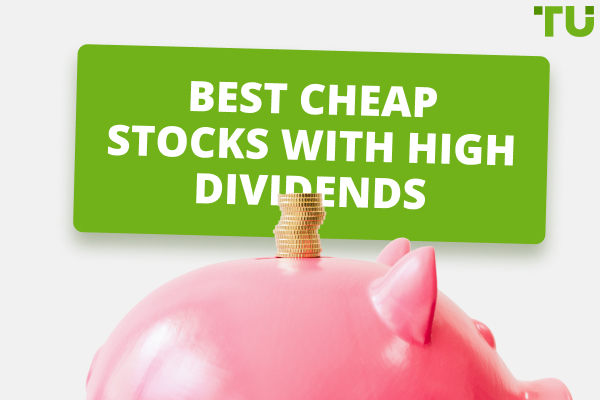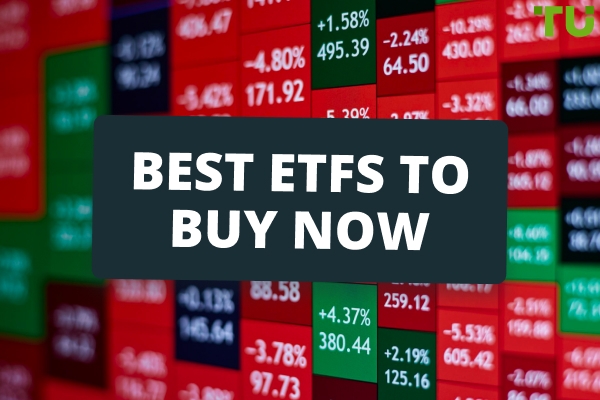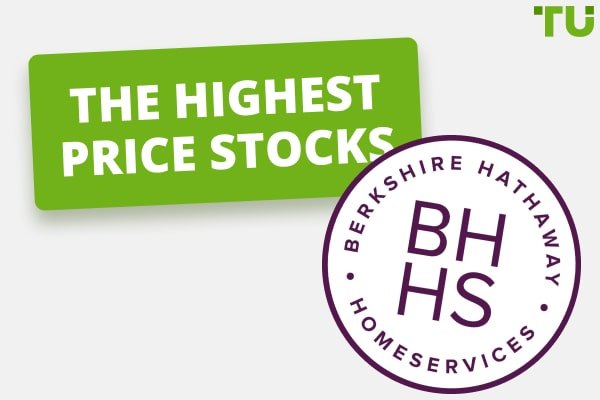Best Stocks with High Dividends
Over the long term, dividend investing offers investors consistent cash flow. Additionally, the power of compounding can greatly increase your earnings when you reinvest dividend earnings. Because they offer both appreciation and capital gains to balance growing prices, the best dividend stocks provide you with a fantastic hedge against inflation.
Have this at the back of your mind. Dividend stocks are not all created equal. For instance, a strong dividend cannot compensate for a stock that performs poorly. Similarly, a high dividend yield could be a trap that hides inconsistent distributions, poor performance, or scant growth potential.
We have compiled a list of the top 10 dividend stocks now trading on the stock market to assist you in your search for trustworthy dividend options. These businesses have provided long-term price stability while increasing annual dividend payouts for at least ten years with appealing yields. Before we get to the list, let’s get to know what a dividend stock is.
Start investing in stocks now with eToro!What is a high-dividend stock?
High dividend-paying stocks are those of companies that pay a 5% dividend or more to their shareholders. Companies pay dividends to their shareholders as a way to return profits to the owners. Although this is not always the case, many dividend-paying stocks pay dividends on a quarterly basis.
Given that profits can go up and down depending on various factors, dividends can fluctuate over time. During recessions, some companies cut their dividends as a way to strengthen their balance sheet. During more expansionary times, company profits can grow, and many companies increase their dividends as a result.
While dividends can fluctuate, the best dividend-paying stocks tend to have a more stable dividend payment history given the strength of their businesses. Because many of the best dividend-paying stocks are blue chip companies with substantial scale and competitive advantages, the companies are often able to keep a 5% dividend or even raise it in tough economic times.
As a result, many of the best high dividend-paying stocks have raised their annual dividends for many consecutive years.
How to choose high-yield dividend stocks.
With stocks in a bear market, inflation running hot, and recession risks rising, you might be wondering if any part of your stock portfolio is likely to generate returns in the coming months, or if preserving your capital is the best one can hope for in this environment.
There are no guarantees in investing, of course, but investors looking for potential ports in the storm for their stock allocations could consider focusing more on steady dividend payers.
In the stock market, it can make sense to focus on measures of quality, those with good cash flow, low debt-to-equity rations, good earnings, and a record of profitability, particularly if they're in more defensive sectors.
Here's how to pick the appropriate ones for you:
How to Invest in Stocks for Beginners with Little Money?Do your own research.
If you plan to invest in dividend stocks, the good news is that you can find these companies all by yourself. All you have to do is look for companies that boast long-term expected earnings growth between 5% and 15%, strong cash flows, low debt-to-equity ratios, and industrial strength. Most times, this can be a very long process for most investors, which is why we recommend the second method you can use to choose high-dividend stocks.
Use a stock screener.
One of the ways you can choose high-yield dividend stocks is by using a stock screener. A stock screener is effective at narrowing down the field of possible dividend stocks to invest in. There are many automated dividend stock screeners available for free on the internet for a serious dividend stock investor.
We love the Finviz stock screener and recommend it to you as well. But further research is required to pick the best dividend stocks that meet your personal objectives. The primary thing that investors must keep in mind is that they should not focus only on the dividend yield when making investment decisions.
List of 30 high-yield dividend stocks
For our list of the best dividend stocks to buy now, we picked 30 stocks that paid dividends and also had competitive advantages and growth potential.
We then ranked the stocks based not only on high dividend yields but also took into account indicators such as the dynamics of the company's earnings and its market capitalization. Only the largest companies with market cap over $1 bln and with a dividend yield of more than 5% were included in this rating.
| Company Name | Ticker | Dividend Yield | Industry |
|---|---|---|---|
| AT&T Inc. | T | 8.57% | Telecommunications |
| Verizon Communications Inc. | VZ | 4.52% | Telecommunications |
| Chevron Corporation | CVX | 4.22% | Oil and Gas |
| Exxon Mobil Corporation | XOM | 5.04% | Oil and Gas |
| Altria Group Inc. | MO | 8.11% | Tobacco |
| Philip Morris International Inc. | PM | 5.16% | Tobacco |
| Williams Companies Inc. | WMB | 5.78% | Oil and Gas |
| Enterprise Products Partners L.P. | EPD | 8.15% | Oil and Gas |
| Iron Mountain Incorporated | IRM | 5.84% | Data and Records Management |
| National Health Investors Inc. | NHI | 5.05% | Healthcare REIT |
| Tanger Factory Outlet Centers Inc. | SKT | 6.52% | Real Estate (Retail) |
| STAG Industrial Inc. | STAG | 5.43% | Real Estate (Industrial) |
| WP Carey Inc. | WPC | 5.14% | Real Estate (Diversified) |
| Medical Properties Trust Inc. | MPW | 6.11% | Healthcare REIT |
| Omega Healthcare Investors Inc. | OHI | 7.59% | Healthcare REIT |
| Iron Mountain Incorporated | IRM | 5.84% | Data and Records Management |
| Oneok Inc. | OKE | 6.20% | Oil and Gas |
| AT&T Inc. | TPR | 5.14% | Telecommunications |
| Energy Transfer LP | ET | 5.23% | Oil and Gas |
| Kimco Realty Corporation | KIM | 5.13% | Real Estate (Retail) |
| Invesco Ltd. | IVZ | 5.15% | Asset Management |
| Annaly Capital Management Inc. | NLY | 9.02% | Mortgage REIT |
| New Residential Investment Corp. | NRZ | 7.30% | Mortgage REIT |
*All data is relevant for the first quarter of 2025. Please always check the current dividend level.
How to Buy Stocks Online: A Beginner's GuideAre high-dividend stock investments a good idea?
Yes, it is!
There are many benefits to investing in companies that pay dividends, especially if you plan to do so for the long term. Although some analysts believe that companies that pay out high dividends show slower growth because they prefer to give back to shareholders rather than invest in growth, while this is true, investors can still make consistent income in the market through dividends. In addition to providing consistent income, many dividend-paying stocks are in defensive sectors that can weather economic downturns with reduced volatility.
Dividend-paying companies also have substantial amounts of cash and, therefore, are usually strong companies with good prospects for long-term performance. In short, dividends provide a way for companies to pay investors a share of their profits. Shareholders benefit because each share of stock they own entitles them to a set dividend payment.
Companies pay out dividends in regularly scheduled payments, either in cash or in the form of additional company stock, typically monthly, quarterly, or annually. For this reason, you can almost think of dividend-paying stocks as a way to earn passive income.
Read also: Top monthly dividend stocks to invest in the TU article.
How many stocks should I buy?
There are a few factors to consider when deciding how many shares of a particular stock to buy. In addition to how much capital you have available, you should also consider diversification and whether you can buy fractional shares of stock. Investing in stocks can present a challenge, and curating a portfolio that suits your financial goals is no easy task.
When it comes to the ideal number of stocks you should hold, diversity is a key piece of the puzzle. With that in mind, here's a quick guide that can help you determine the ideal number of shares to buy.
So, the exact number of stocks in your portfolio is a personal choice based on your knowledge, skills, and time horizon. Generally speaking, many sources say 20 to 30 stocks is an ideal range for most portfolios.
It's important to strike a balance between investing in a diverse array of assets and ensuring that you have the time and resources to manage these investments. While there is no one-size-fits-all answer, most analysts say somewhere between 20 and 30 stocks is necessary to achieve a minimum level of diversification. Diversification allows you to capitalize on potential growth in one area without losing too much if another plunges, since not all of your money is concentrated in that field.
According to statistical analysis, financial experts believe that 20 stocks are the bare minimum needed for a portfolio to benefit from diversification and that a cap of around 30 stocks is the best.
Best stock brokers 2025
Summary
High dividend-yielding stocks indicate companies with financial stability. It also shows that the company is sustainable and its stock can give good returns over time. Refer to the list of the best, highest dividend-paying stocks mentioned in this article when you are curating your investment plan. On that note, it is always worthwhile to consult a financial advisor while doing this. Happy Investing!
FAQs
What are dividend stocks?
Companies that consistently distribute profits as dividends to their shareholders and have a tremendous track record are known as dividend stocks.
Does investing in dividend stocks give dual benefits to investors?
Yes, investing in dividend stocks helps investors enjoy all the dual benefits, such as value appreciation and consistent regular income.
What’s the best thing about dividend stocks?
The best thing about dividend stocks is that they gain back their value during harsh market movements, making them a reliable option for risk investors seeking capital protection.
Why a diversified portfolio matters
Diversification, or spreading your money across multiple investments and investment types, ensures that your money stays safe if one or a few assets suddenly dip since those in other industries can compensate for the loss and maintain balance.
Glossary for novice traders
-
1
CFD
CFD is a contract between an investor/trader and seller that demonstrates that the trader will need to pay the price difference between the current value of the asset and its value at the time of contract to the seller.
-
2
Volatility
Volatility refers to the degree of variation or fluctuation in the price or value of a financial asset, such as stocks, bonds, or cryptocurrencies, over a period of time. Higher volatility indicates that an asset's price is experiencing more significant and rapid price swings, while lower volatility suggests relatively stable and gradual price movements.
-
3
Options trading
Options trading is a financial derivative strategy that involves the buying and selling of options contracts, which give traders the right (but not the obligation) to buy or sell an underlying asset at a specified price, known as the strike price, before or on a predetermined expiration date. There are two main types of options: call options, which allow the holder to buy the underlying asset, and put options, which allow the holder to sell the underlying asset.
-
4
SIPC
SIPC is a nonprofit corporation created by an act of Congress to protect the clients of brokerage firms that are forced into bankruptcy.
-
5
Robo-Advisor
A Robo-Advisor is a digital platform using automated algorithms to provide investment advice and manage portfolios on behalf of clients, often with lower fees than traditional advisors.
Team that worked on the article
Andrey Mastykin is an experienced author, editor, and content strategist who has been with Traders Union since 2020. As an editor, he is meticulous about fact-checking and ensuring the accuracy of all information published on the Traders Union platform. Andrey focuses on educating readers about the potential rewards and risks involved in trading financial markets.
He firmly believes that passive investing is a more suitable strategy for most individuals. Andrey's conservative approach and focus on risk management resonate with many readers, making him a trusted source of financial information.
Also, Andrey is a member of the National Union of Journalists of Ukraine (membership card No. 4574, international certificate UKR4492).
Dr. BJ Johnson is a PhD in English Language and an editor with over 15 years of experience. He earned his degree in English Language in the U.S and the UK. In 2020, Dr. Johnson joined the Traders Union team. Since then, he has created over 100 exclusive articles and edited over 300 articles of other authors.
Mirjan Hipolito is a journalist and news editor at Traders Union. She is an expert crypto writer with five years of experience in the financial markets. Her specialties are daily market news, price predictions, and Initial Coin Offerings (ICO).














